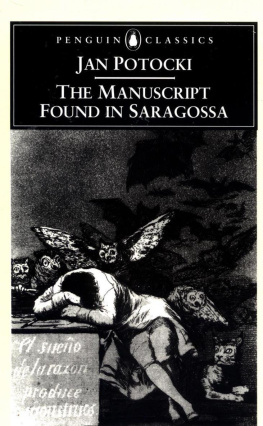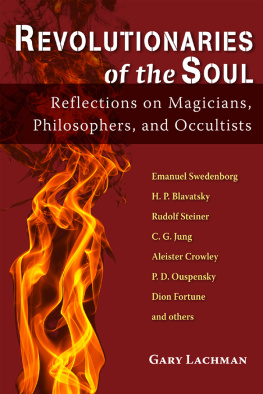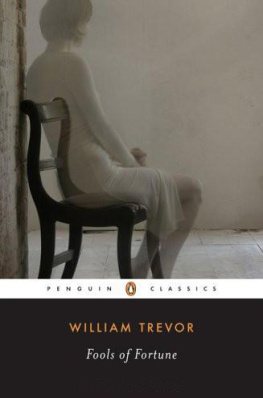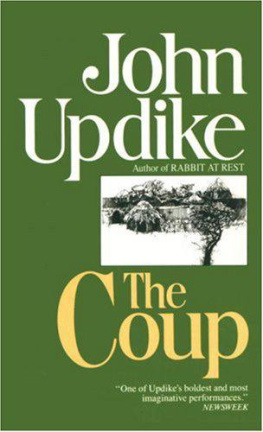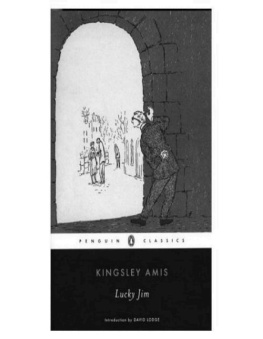Jan Potocki - The Manuscript Found in Saragossa (Penguin Classics)
Here you can read online Jan Potocki - The Manuscript Found in Saragossa (Penguin Classics) full text of the book (entire story) in english for free. Download pdf and epub, get meaning, cover and reviews about this ebook. year: 1996, publisher: Penguin Classics, genre: Detective and thriller. Description of the work, (preface) as well as reviews are available. Best literature library LitArk.com created for fans of good reading and offers a wide selection of genres:
Romance novel
Science fiction
Adventure
Detective
Science
History
Home and family
Prose
Art
Politics
Computer
Non-fiction
Religion
Business
Children
Humor
Choose a favorite category and find really read worthwhile books. Enjoy immersion in the world of imagination, feel the emotions of the characters or learn something new for yourself, make an fascinating discovery.
- Book:The Manuscript Found in Saragossa (Penguin Classics)
- Author:
- Publisher:Penguin Classics
- Genre:
- Year:1996
- Rating:3 / 5
- Favourites:Add to favourites
- Your mark:
- 60
- 1
- 2
- 3
- 4
- 5
The Manuscript Found in Saragossa (Penguin Classics): summary, description and annotation
We offer to read an annotation, description, summary or preface (depends on what the author of the book "The Manuscript Found in Saragossa (Penguin Classics)" wrote himself). If you haven't found the necessary information about the book — write in the comments, we will try to find it.
Jan Potocki: author's other books
Who wrote The Manuscript Found in Saragossa (Penguin Classics)? Find out the surname, the name of the author of the book and a list of all author's works by series.
The Manuscript Found in Saragossa (Penguin Classics) — read online for free the complete book (whole text) full work
Below is the text of the book, divided by pages. System saving the place of the last page read, allows you to conveniently read the book "The Manuscript Found in Saragossa (Penguin Classics)" online for free, without having to search again every time where you left off. Put a bookmark, and you can go to the page where you finished reading at any time.
Font size:
Interval:
Bookmark:


THE MANUSCRIPT FOUND IN SARAGOSSA
A Polish classic constructed like a Chinese box of tales It
reads like the most brilliant modern novel Salman Rushdie in
the Guardian
One of the great masterpieces of European literature this new
translation offers us the work as a whole in English for the first time,
in the dizzyingly elaborate form envisioned by the authors
extraordinary imagination Larry Wolff in The New York Times
Book Review
The translation by Ian Maclean is crisp, lucid and unfussy A
beautiful volume, underlining Potockis forgotten masterpiece as a
work of real substance James Woodall in The Times
A picaresque ramble through Islam and the inquisition This is
the stuff of reading on a grand scale, fiction of enduring splendour
David Hughes in the Mail on Sunday
Impossible to put down - Katherine A. Powers in the Boston Globe
A bravura translation the 100 or so stories told over 66 Days
are fantastic, ghostly, erotic, comic, ghoulish, philosophical and
Munchausenly tall - David Coward in the Sunday Telegraph
This volume is excellent value, two dozen fresh and ingenious tales
for the price of a novel - Julian Duplain in the Times
Literary Supplement
At its most magical The Manuscript Found in Saragossa reads like The
Arabian Nights , at its most italianate like something from The
Decameron a masterwork of European romanticism - Michael
Dirda in the Washington Post Book World
One of the strangest books ever written can at last take its rightful
place in world literature - Kola Krauze in the Guardian
ABOUT THE AUTHOR AND TRANSLATOR
JAN POTOCKI was born in Poland in 1761 into a very great aristocratic family, which owned vast estates. He was educated in Geneva and Lausanne, served twice in the army and spent some time as a novice Knight of Malta. During his lifetime he was an indefatigable traveller and travel-writer, an Egyptologist and pioneering ethnologist, an occultist and an historian of the pre-Slavic peoples. He was a political activist and probably a freemason, although he seems to have espoused a bafflingly wide range of political causes, some of them patriotic. Among his other exploits were an ascent in a balloon over Warsaw with the aeronaut Blanchard and the provision of the first free press in that city.
Potocki was proficient in many different languages, and his extensive travels led him through the Mediterranean, the Balkans, the Caucasus and China. He married twice (the first marriage ending in divorce) and had five children: scandalous rumours surrounded both of his marriages. In 1812 he retired to his estates in Poland, suffering from chronic ill health, melancholia and disillusionment. He committed suicide in 1815. Although the exact details of his end are uncertain, the most credible story is that he blew his brains out with a silver bullet, which was modelled from the knob of his sugar-bowl and first blessed by the castle chaplain.
IAN MACLEAN is Reader in French at the University of Oxford and a Fellow of the Queens College.
The Manuscript Found in Saragossa

JAN POTOCKI
TRANSLATED BY IAN MACLEAN

PENGUIN BOOKS
in memoriam absentium
J. N. M. M. J. W. M. E. M. D. E. M. M. W. B. H.
PENGUIN BOOKS
Published by the Penguin Group
Penguin Books Ltd, 27 Wrights Lane, London W8 5TZ, England
Penguin Putnam Inc., 375 Hudson Street, New York, New York 10014, USA
Penguin Books Australia Ltd, Ringwood, Victoria, Australia
Penguin Books Canada Ltd, 10 Alcorn Avenue, Toronto, Ontario, Canada M4V 3B2
Penguin Books (NZ) Ltd, Private Bag 102902, NSMC, Auckland, New Zealand
Penguin Books Ltd, Registered Offices: Harmondsworth, Middlesex, England
First modern edition published in French 1989
This translation first published by Viking 1995
Published in Penguin Books 1996
13
Copyright Jos Corti, 1992
This translation copyright Ian Maclean, 1995
All rights reserved
The moral right of the translator has been asserted
Except in the United States of America, this book is sold subject
to the condition that it shall not, by way of trade or otherwise, be lent,
re-sold, hired out, or otherwise circulated without the publishers
prior consent in any form of binding or cover other than that in
which it is published and without a similar condition including this
condition being imposed on the subsequent purchaser
Contents

Introduction

The Manuscript Found in Saragossa is a complex interweaving of tales narrated by a young army officer called Alphonse van Worden, who kept a diary of his experiences in the Sierra Morena in 1739, recording both the events which he witnessed and the stories he was told by the company in which he found himself. In 1769 or thereabouts, his diary was sealed by him (so the story goes) in a casket; forty years later, it was found by a French officer while out looting after the fall of the city of Saragossa. He didnt know much Spanish, but he realized that what he had come upon was a story about brigands, ghosts, cabbalists, smugglers, gypsies, haunted gallows and no doubt much else besides. It was an intriguing mystery: intriguing enough to persuade him to keep the book in his possession, to attempt to hang on to it when he was captured and, later, to inveigle his captor into translating it for him. The same intriguing mystery awaits the reader of this translation: or rather the same complicated web of mysteries. The French officer of the foreword was careful not to spoil the story by revealing too much about it in his preface, and in this introduction I shall be just as discreet; but without giving away too much, I can suggest where the mysteries of the book are to be found.
There are in fact three enigmatic aspects to the book: its author, its composition and its contents. Its author, Count Jan Potocki (17611815), was a member of a very great Polish family who lived at a time of considerable literary and political turbulence throughout Europe. His life was spent in travelling, writing, political intrigue and scholarly research. He received a solid education in Geneva and Lausanne, had two spells in the army as an officer in the engineers, and spent some time on a galley as a novice Knight of Malta. He was among the first to make an ascent in a balloon (in 1790), which brought him much public acclaim; he was a tireless political activist, consorting with patriots in Poland, Jacobins in France and the court of Alexander I of Russia. He appears to have been a freemason. All this activity cannot easily be ascribed to a single set of beliefs: at certain times he applauded, at others condemned the French Revolution; he fought against the Russians yet served the Tsar, and accepted a commission to fight alongside the Austrians while declaring himself their political enemy. His travels at different periods of his life took in Italy, Sicily, Spain, Tunisia, Turkey, Egypt, France, Holland, England, Germany, Russia, even Mongolia; he wrote lively accounts of most of these journeys, and while on them engaged in historical, linguistic and ethnographical researches. His published writings helped found the discipline of ethnology. He compounded his scholarly activity with an interest in publishing, establishing an independent press in Warsaw in 1788 and a free reading room there four years later. As well as writing and publishing scholarly works and pamphlets, he wrote a play, a set of sketches (parades), and, of course, The Manuscript Found in Saragossa . He married twice, and had five children; he was divorced from his second wife in 1808. There were rumours of incest. By 1812, politically disillusioned and in poor health, he had retired to his castle at Uladwka in Podolia. On 2 December or 11 December 1815 (depending on the source), he committed suicide, although whether out of political despair, mental depression or a desire to be released from a highly painful chronic condition is not clear. Many stories are told about his death. He is said to have fashioned a silver bullet himself out of the knob of his teapot (or the handle of a sugar-bowl bequeathed to him by his mother); he had it blessed by the chaplain of the castle, and then used it to blow out his brains in his library (or his bedroom), having written his own epitaph (or, according to other sources, drawn a caricature of himself). The macabre stories about his end, his equivocal political career and personal life, his polymathy and his restless wanderings all contribute to the composite picture of an Enlightenment thinker and a romantic figure par excellence , commensurate with his one great literary work.
Next pageFont size:
Interval:
Bookmark:
Similar books «The Manuscript Found in Saragossa (Penguin Classics)»
Look at similar books to The Manuscript Found in Saragossa (Penguin Classics). We have selected literature similar in name and meaning in the hope of providing readers with more options to find new, interesting, not yet read works.
Discussion, reviews of the book The Manuscript Found in Saragossa (Penguin Classics) and just readers' own opinions. Leave your comments, write what you think about the work, its meaning or the main characters. Specify what exactly you liked and what you didn't like, and why you think so.

